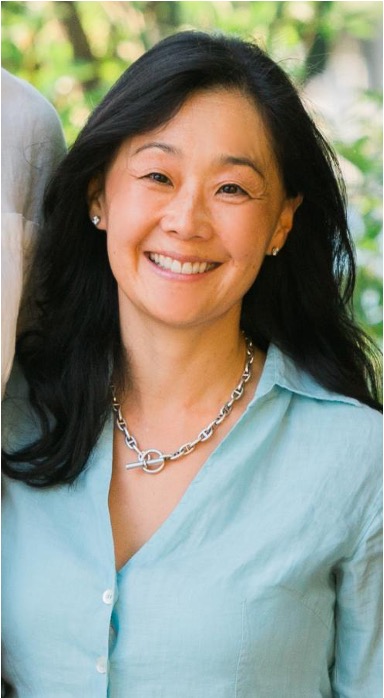Dr Eiko Waida, a Vernon-based pediatrician, is ready to help guide SSC’s Quality Improvement Working Group (QIWG) into the future as its new Co-chair. The QIWG oversees the work of SSC’s Physician Quality Improvement (PQI) and Spreading Quality Improvement (SQI) initiatives.
Her enthusiasm for QI has brought her here.
“Learning QI really reignited my passion for medicine,” she says, noting that she had contemplated leaving the profession before getting involved. “I was absolutely smitten with the science of quality improvement and the people who were involved.”
“QI has given me agency. It gives us all permission to fail, but fail forward – and through that, we gain knowledge about the systems that we work in. I have found that to be very powerful.”
“It has also given me access to a community of such bright, creative and enthusiastic people who share the same passion for improvement. That's what I love about it.”
A QI journey
Dr Waida’s journey began about five years ago, when she went to a PQI information session given by SSC and Interior Health. She went on to take a PQI introductory course, and participate in Cohort two.
The main focus of her QI work has been in the area of pediatric diabetes. She is currently working to increase engagement and improve glycemic control in pediatric patients with Type 1 diabetes – and to spread the approach to other Interior Health sites. She is also leading a project to bring "Joy in Work" to hospital staff.
Dr Waida was such a champion of PQI, that after her training, she was asked to join the PQI steering committee as an Interior Health representative, and then co-chair. Subsequently, she was invited to the SSC’s QI Working Group as a member, and now, as Co-chair. She has gained leadership skills through those experiences, as well as a number of courses including the IHI Improvement Advisor Professional Development Program, the Interior Health Navig8 Emerging Medical Leaders Program, and soon, SSC’s Sauder Leadership Program.
Leading with inclusion
Her leadership style is one of inclusion. Dr Waida notes, “I have learned a good leader needs to know themselves, their strengths, and their weaknesses. I see my leadership on three levels: micro, where I help leverage the strengths of my project teams; meso, where I help guide the work at the Health Authority level, and on a macro level where I work with colleagues on the QIWG. At all levels, it’s about understanding everyone’s priorities and bringing people together to reach the best decisions and create impact."
Dr Waida talks about focusing on promoting equity, diversity, and inclusion. “I want to help make sure our people have the tools they need to really weigh in on decisions. It’s also important to have a diversity of voices. I see inclusion as making sure people feel encouraged to speak up and are comfortable to do so.”
“I've learned the importance of working towards being a learning organization, so we really listen to what people have to say, and lean into their perspectives,” she says. “I think that begins with valuing the patient voice. That is really something that resonates deeply with me.”
QI for health system change
Dr Waida notes that the SSC has taken on PQI and SQI to help create learning organizations that leverage and share knowledge, which in turn helps to align the work within health authorities and through the health care system.
“We don’t want to be in a sea of projects; we want to have momentum and alignment to ensure the money is spent in a way the really moves the needle on improving care for our patients and our communities.”
She believes that in a complex health care system, QI methodology – supported through measurement and alignment – is the right path to achieve this change, improve efficiency, and identify and address gaps in care.
While Dr Waida acknowledges there are many challenges in health care, it is also a time of great opportunity for physicians to lead change. “I think with the large number of trained QI physicians in the province, really wonderful things are sure to happen. It’s very exciting.”

Dr Eiko Waida



